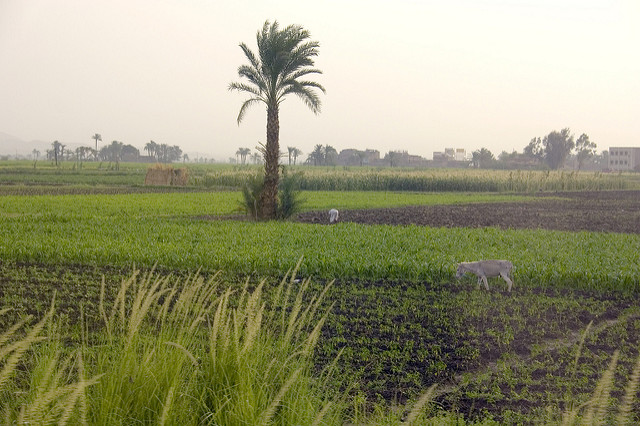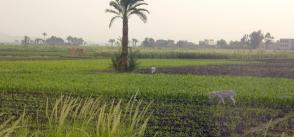
The reality of Egypt’s water supply
Upon hearing the government had passed a law to reduce cultivation of rice and freeze cultivation of bananas and sugarcane, Hajj Abdel Meguid, a 61-year-old rice farmer from Kafr el Sheikh governorate, traveled to Cairo to find out how it might affect his plot. He got nowhere, despite several meetings with ministry officials over the course of two weeks. “I never imagined a day when I would find myself not cultivating rice,” says Abdel Meguid. “It has been in my family since my great-grandfather.”
If his land is included in the restriction, Abdel Meguid would see his income drop to almost nothing and his living costs rise since his family eats the rice he cultivates instead of buying bread. “Why would we buy bread when we have free rice?” he asks. Similar hardships could be felt by anyone whose livelihood is related to the three impacted crops.
Accordingly, experts stress that the government must find and subsidize alternatives to compensate for any shortfall in the supply of two strategic crops, rice and sugarcane, as well as the mostly exported banana crop. “The critical balancing act is to ensure this decision doesn’t turn into a severe shortage that would impact the entire economy,” says Mostafa el Nagary, head of the rice committee at the Agriculture Export Council.
On a macroeconomic scale, the issue taps into the likelihood of a rise in import costs and export revenue decline.
At 55.5 billion liters of water per year from the Nile, the government has declared Egypt a water-poor nation where conservation measures must be applied. A January proposal to regulate production of bananas, sugarcane and rice was approved by Parliament in April. “Egypt has always witnessed changes to its agriculture landscape, mainly due to food subsidies and government price caps on farmers,” says Maher Abou Gabal, head of marketing at Yara International, a produce-packaging company. “However, this news means the shift should be much faster and more dramatic.”
Read the full article by Tamer Hafez via Business Monthly.
[Photo by Christopher Rose | Flickr]







